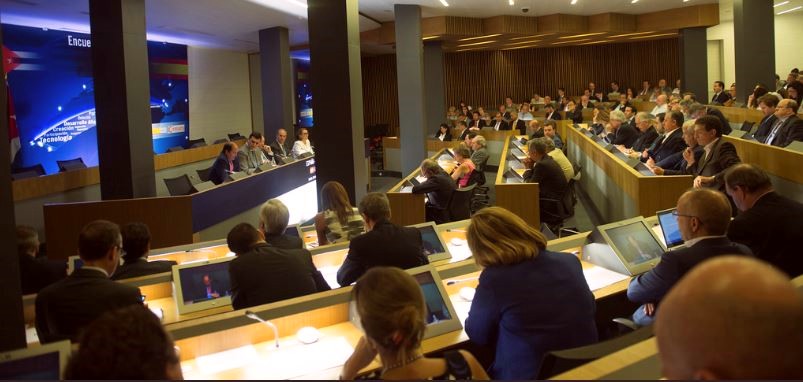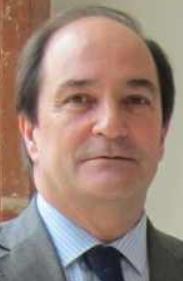
200 Spanish business leaders hear Cuban minister’s invitation to invest
Cuba needs $2.5 billion a year in foreign investment to boost its economic development, Cuba’s minister of Foreign Trade told 200 business executives in Madrid on Thursday (July 30), according to the Spanish Chamber of Commerce.

The gathering — organized by the Chamber, the Spanish Federation of Entrepreneurial Organizations (CEOE) and the State Secretariat of Commerce — was intended to make known the priorities of the Cuban government and the possibility of industrial cooperation with Spain.
Referring to Cuba’s 2014 Law on Foreign Investment, Rodrigo Malmierca said that 246 projects have been approved for participation, many of them in the Special Development Zone of Mariel, a technological and industrial center west of Havana.
Other sectors of interest are tourism, telecommunications and transportation, Malmierca said.
“Spain wants to be not only the largest tourism operator [in Cuba] with 70-to-80 percent of the hotel capacity — as it has been until now — but also we have hopes, an obligation and a commitment to enter the industrial sector,” said Joaquim Gay de Montellá, vice president of the CEOE, who met with Malmierca.

“The Mariel Zone can become an important center of economic development for Cuba and the Caribbean, thanks to the ambitious process of modernization of its infrastructures and the advantageous tax structure,” De Montellá said.
Malmierca stressed the drafting in Cuba of a Program of Economic-Social Development that guarantees structural changes that will promote development until 2030. He also pointed to the swift rise of cooperatives that would be accessible to foreign investment.
According to the vice president of the Chamber of Commerce, Modesto Piñeiro, “Spanish business companies are demonstrating their willingness to collaborate in the modernization of the Cuban economy. Not only the large ones but also the small and midsize [companies], which have a successful international experience in the sectors identified as priorities by the Cuban government, such as construction and infrastructure, hotels, food production, transportation and renewable energy.”
Piñeiro also referred to the inclusion of Cuba, as a preferential market, to the Internalization Plan being drafted by the Chamber of Commerce for publication in 2016. In the fall, there will be a meeting of the Bilateral Business Committee, which for years has been the only channel for communication between the Chambers of Commerce of Cuba and Spain, he said.

De Montellá told the attendees that the CEOE sees as very positive the efforts made by the Central Bank of Cuba to eliminate its dual-currency system, which will facilitate the commercial transactions and accounting of Spanish businesses on the island.

He pointed to two other initiatives that he described as positive: insurance coverage for financial transactions, provided by Spain’s Credit Insurance for Exports Company ($27.5 million), and a $45.37 million line of credit provided to Spanish businesses in Cuba by the Spanish Development Financing Institution (COFIDES).
Francisco Javier Garzón, head of Exports and Investments (ICEX) at the Commerce Secretariat, said that Spanish exports to the island in 2014 amounted to nearly $767.7 million, about 5 percent of Spain’s exports to all of Latin America.
Rebeca Grynspan, head of the United Nations’ Ibero-American Secretariat (SEGIB), also attended the meeting with Malmierca. The SEGIB brings together the heads of state and government of Latin America, Spain, Portugal, and Andorra and other government representatives and civil society in order to advance economic, social, and cultural development among the 22 countries of Latin America plus Spain, Portugal, and Andorra.


